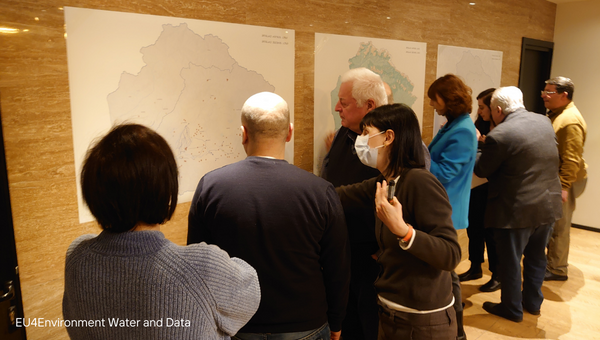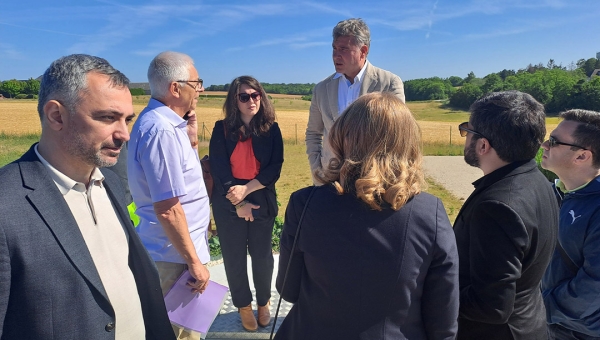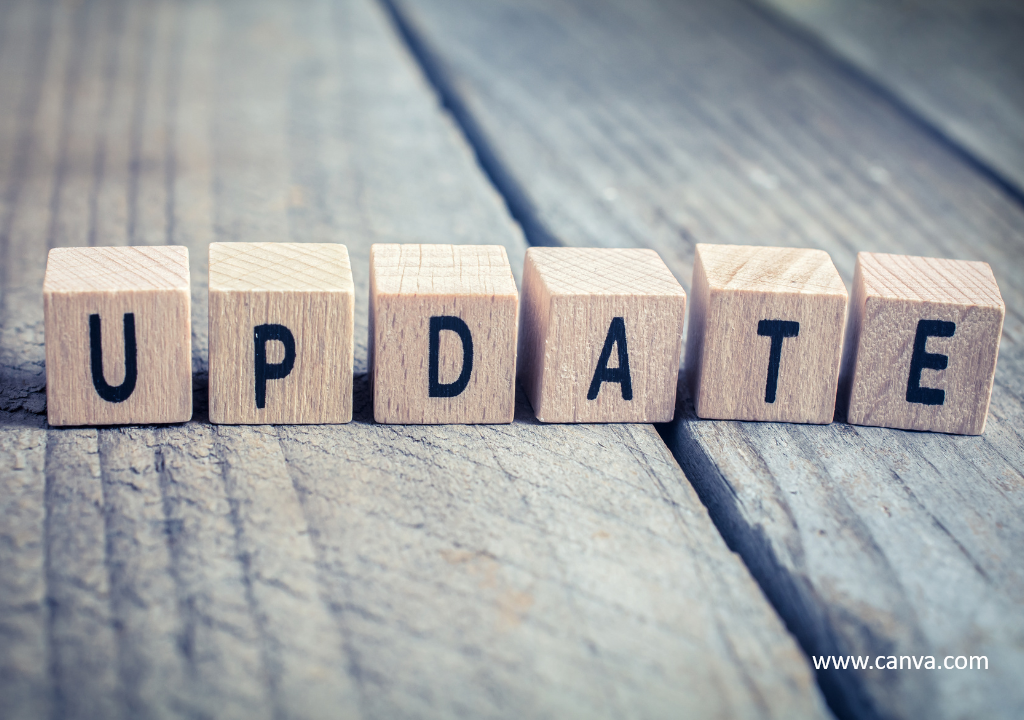- Country: Georgia
- Component: Water resources
On February 14, 2023 the Kick-off workshop for the development of the River Basin Management Plans (RBMP) for the Enguri and Rioni river basins in Georgia was held at “Best Western Hotel” in Kutaisi.
The aim of the meeting was to present the approach and timeline for the development of RBMPs, introduce the Georgian team of experts involved in the development, and initiate the dialogue with local stakeholders.
The meeting was attended by around 40 representatives of the beneficiary organisations, regional administrations, local authorities, NGOs, local subcontractor, water sector experts, as well as the “EU4Environment: Water and Data” programme.
Opening remarks were made by Maia Javakhishvili, Deputy Head of Environment and Climate Change Department, Ministry of Environmental Protection of Georgia and representatives of the “EU4Environment: Water and Data” programme.
As an introduction to the meeting, the history and status of development of RBMPs in Georgia was presented by Mariam Makarova, Head of Water Division, MEPA Department of Environment and Climate Change.
The local contractor team for development for the RBMPs, REC Caucasus, and the programme's representatives presented the timeline and methodology of the RBMP development. The French expert from International Office for Water shared experiences from the EU member states. The work to develop the RBMP chapters started in December 2022, the RBMP is expected to be finalised by June 2024.
Georgian experts responsible for the development of the RBMP chapters presented their approach and methodologies, including the delineation of water bodies, basin characterisation, identification of significant pressures and analysis of their impacts. The participants to the workshop provided their feedbacks.
The approach for communication and stakeholder engagement in both basins was also presented by the expert of the local contractor. Two plenary consultation meetings (multi stakeholder meetings) are foreseen at different development stages for both plans.
The last session of the workshop was dedicated to identification of data and information, to the identification of on-going projects and initiatives in the basin, as well as to a preliminary identification of the main challenges in the basins, according to local stakeholders. The identified issues ranged from site-specific pressures and issues to problems general for the overall basin, as well as institutional and global issues, requiring intervention at national level.






